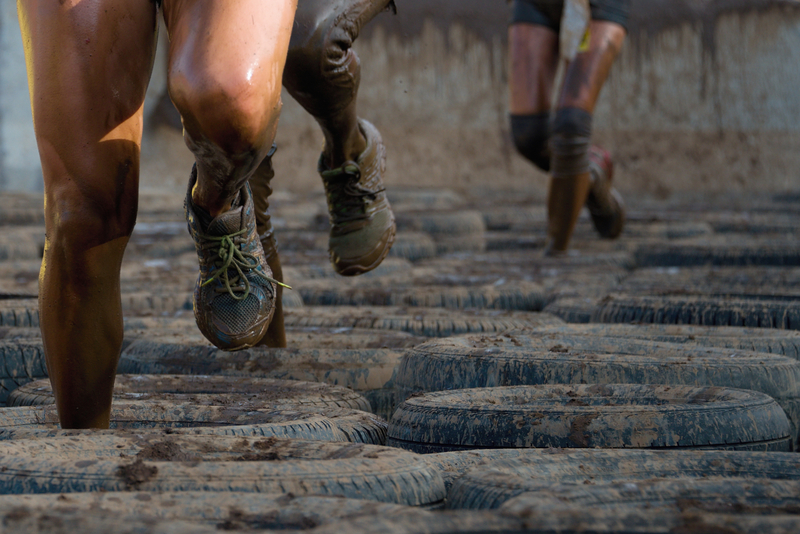Essential Skip Hire Advice: What to Do and What to Avoid
Whether you are renovating your home, clearing out your garden, or overseeing a commercial construction project, hiring a skip is often the most convenient method for waste management. However, misjudging a few aspects can lead to extra costs, legal troubles, and unwanted hassle. Our in-depth guide provides you with essential skip hire advice--covering what you should do to streamline your experience, and what pitfalls to avoid. Follow these expert tips to make your next project efficient, eco-friendly, and stress-free.
Understanding Skip Hire: Why You Need It
Skip hire is an efficient waste disposal solution widely used in the UK for both residential and commercial projects. From home renovations and garden landscaping to major building works, a skip offers a designated space for collecting various types of waste, which are then responsibly transported for sorting, recycling, or disposal by licensed providers.
- Saves time and effort: No more countless trips to the local tip.
- Legal compliance: Ensures you meet waste disposal regulations.
- Environmental responsibility: Promotes recycling and appropriate disposal methods.

What to Do When Hiring a Skip
To get maximum value and avoid unnecessary stress, follow these skip hire tips for a seamless experience:
1. Choose the Right Skip Size
Selecting the correct skip size is crucial. Too small, and you'll pay for double collections; too large, and you're wasting money on unused capacity. Consider the type and volume of waste you'll generate.
- Mini skips (2-3 yards): Best for small garden clearances & home DIY projects.
- Midi skips (4-5 yards): Perfect for single-room renovations.
- Builders skips (6-8 yards): Suitable for home remodels and medium construction projects.
- Large skips (12-16+ yards): Ideal for commercial or substantial domestic jobs.
Tip: When in doubt, it's often safer to size up--it's more cost-effective than ordering a second skip.
2. Know What You Can and Can't Put in a Skip
Not every type of rubbish can go into standard skips due to environmental and legal restrictions. Check your provider's guidelines carefully.
-
Allowed:
- General household waste
- Garden debris
- Construction rubble
- Wood, plastics, and metals
- Furniture and non-electric appliances
-
Prohibited:
- Asbestos
- Electrical items (e.g., fridges, TVs, computers)
- Batteries and tyres
- Paint, solvents, oils, and chemicals
- Gas cylinders
- Clinical or hazardous waste
Warning: Placing prohibited items in skips may incur heavy fines, or the provider may refuse collection.
3. Obtain the Right Permits
Will the skip fit on your private property? If not, and it must be placed on a public road or pavement, most councils require a skip permit. Your skip hire company can often arrange this for an additional fee. Never assume you can simply put a skip wherever it fits--double-check local regulations first!
4. Compare Local Skip Hire Companies
Do your homework before settling on a firm. Some key factors to compare:
- Competitive skip hire prices
- License and waste carrier accreditation
- Skip availability for desired dates
- Recycling rate and environmental policies
- Customer reviews and reputation
- Responsiveness and customer service
Remember: The cheapest option isn't always best--look for strong service and responsible waste handling.
5. Prepare the Space for Skip Delivery
Clear a flat, accessible area free of obstructions like parked cars, overhanging trees or low wires. If your surface is soft (e.g., grass), lay boards underneath to avoid damage from the skip's weight.
- Ensure there's enough room for delivery lorry access
- Keep neighbours informed if your skip installation might impact them
- Arrange the drop-off date in advance and keep the area clear
6. Load Your Skip Safely and Efficiently
Correct loading makes all the difference. Here are some practical skip loading tips:
- Break down bulky items to save space
- Distribute weight evenly for safe transportation
- Place flat items at the bottom and fill gaps with smaller debris
- Do not overload: Skip contents must not exceed the sides (the "fill line")
Important: Overfilled skips can't be safely transported and may result in extra charges or refusal of collection.
What to Avoid When Using Skip Hire Services
To prevent extra fees, legal trouble, or logistical nightmares, heed these crucial warnings when working with local skip hire companies.
1. Avoid Unlicensed Skip Hire Providers
Only choose a company with a valid Waste Carriers License from the Environment Agency. Using unregistered firms can result in fly-tipping, heavy fines, and environmental damage. Always request proof of licensing.
2. Don't Underestimate Skip Sizes
Underestimating your waste volume often leads to costly second skips or overfilling penalties. Take your time to estimate, consult the hire firm, and consider previous experiences. A little extra space is almost always worth the peace of mind.
3. Never Ignore Skip Hire Permit Requirements
Placing a skip on a public highway without a permit is illegal and can result in significant fines or skipped collections. If unsure, ask your skip provider to clarify--permit rules and costs can differ by council.
4. Don't Mix Prohibited Waste with General Rubbish
Combining restricted items like asbestos, fridges, or toxic chemicals with regular bin bags puts workers at risk and incurs extra handling charges. Always dispose of hazardous waste through authorised channels--ask your skip hire company for tailored hazardous waste disposal advice if needed.
5. Don't Block Access to Your Skip
Collection lorries need uninterrupted access. Cars blocking driveways, locked gates, or overgrown hedges can cause missed pickups, extra charges, or even damage to your property. Inform neighbours if necessary and keep your access clear until removal is complete.
Money-Saving and Sustainable Skip Hire Tips
Making your skip hire experience cost-effective and green is easier than you might think. With a few simple measures, you can save money and protect the environment.
1. Get Multiple Quotes
Prices can vary greatly between providers, so always gather at least 3 quotes and check what's included. Are there extra charges for permits, delivery, weekends, or overweight skips? Don't be caught out.
2. Share a Skip with Neighbours
If you and your neighbours are all tackling DIY or garden work, share the cost of one larger skip between your households. You'll each pay less, minimise road clutter, and reduce overall waste collections.
3. Segregate Waste Responsibly
Many skip hire companies offer discounts for loads that are kept "clean" (e.g., only soil, or only rubble). This boosts recycling rates and lowers landfill costs. Ask your provider about special discounts for single-material loads.
4. Schedule Your Skip Thoughtfully
Avoid last-minute or weekend bookings, which may cost more. Plan your hire period so it aligns with the busiest days of your project, and make sure you don't need an extension (which could incur fees).
5. Donate or Sell Reusable Items
Before putting everything into your skip, consider what could be reused by others. Furniture, bicycles, or garden equipment might be donated to local charities or sold online. This cuts down on waste and helps your community.

Frequently Asked Questions about Skip Hire
1. How long can I keep a skip on my property?
Most companies offer standard hire periods from 7 to 14 days. If you need the skip longer, ask about extension fees before booking.
2. Do I need to be present for skip delivery and collection?
It's best to be at home to direct the driver and confirm correct placement, but if you provide clear instructions and accessible space, it's not essential. Always make sure your contact details are passed on to the driver.
3. What happens to my rubbish after the skip is collected?
Licensed skip hire providers sort, recycle, and dispose of your waste in accordance with environmental regulations. Many firms now recycle up to 90% of the contents, reducing landfill and promoting eco-friendly disposal.
Conclusion: Smarter Skip Hire for Every Project
To summarise, essential skip hire advice boils down to making informed choices and planning ahead. Do your research, pick the right firm and skip size, and handle waste legally and responsibly. Don't cut corners with permits or licences, ignore what can and can't be disposed of, or risk fines by overfilling your skip.
By following these proven skip hire tips, you'll benefit from a tidy site, reduced environmental impact, and no unexpected costs. For specialist or local advice, always consult a leading local skip hire company--and enjoy peace of mind that your project is safe, legal, and efficient from start to finish.